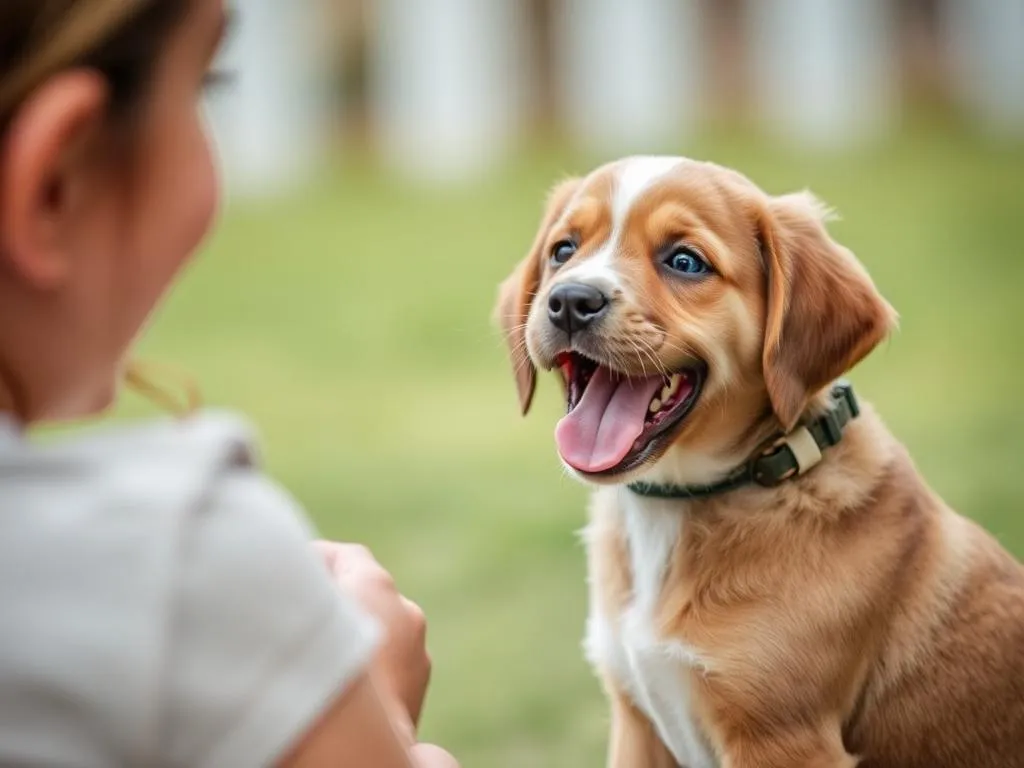
Introduction
Socializing a puppy is one of the most critical aspects of their early development and training. Proper socialization sets the foundation for a well-adjusted and confident adult dog. In the context of dog training, socialization refers to the process of exposing your puppy to a variety of people, environments, and experiences in a positive way. The ideal age for socialization is typically between 3 to 14 weeks, known as the critical period for learning. This is when puppies are most receptive to new experiences, and the benefits of proper socialization can be profound—leading to better behavior, reduced anxiety, and a more adaptable pet.
Understanding Puppy Socialization
What is Socialization?
Socialization for puppies involves teaching them how to interact safely and calmly with the world around them. This includes meeting new people, experiencing different environments, and interacting with other animals. Socialization differs from training; while training focuses on teaching commands and obedience, socialization emphasizes exposure and comfort in various situations.
Why is Socialization Important?
The importance of socialization cannot be overstated. Well-socialized puppies tend to exhibit long-term behavioral benefits, such as:
- Reduction in Fear and Aggression: Properly socialized puppies are less likely to develop fear or aggression towards unfamiliar people, animals, or situations.
- Enhanced Adaptability: A well-socialized dog can adapt to new environments and experiences with ease, making them more flexible companions.
- Improved Behavior: Socialization helps prevent behavior problems, ensuring your puppy grows into a well-mannered adult dog.
Critical Socialization Period
Understanding the critical socialization period is essential for any puppy owner. This is the window from about 3 to 14 weeks of age when puppies are most open to new experiences. During this time, they learn essential social skills that will impact their behavior for the rest of their lives. Starting the socialization process early can lead to a more confident and well-adjusted adult dog.
Signs of a Well-Socialized Puppy
Behavior Indicators
A well-socialized puppy will exhibit certain positive behaviors, including:
- Friendliness: Approaching new people and animals with curiosity rather than fear.
- Curiosity: Being eager to explore their environment and engage with different stimuli.
- Confidence: Showing a relaxed demeanor in new situations.
Conversely, signs of anxiety or fear might include cowering, barking excessively, or trying to escape from unfamiliar situations.
Interactions with Other Dogs
Healthy play behavior is a hallmark of a well-socialized puppy. Look for signs such as:
- Play Bowing: A dog lowers their front legs while keeping their rear end raised, indicating a desire to play.
- Gentle Biting: Puppies often use their mouths during play; however, a well-socialized puppy will learn to control their bite.
- Reciprocal Play: Engaging in back-and-forth play with other dogs, showing they understand social cues.
Interaction with People
A well-socialized puppy should feel comfortable around people of all ages and demographics. Signs of comfort include:
- Approaching strangers with a wagging tail.
- Seeking attention and affection.
- Remaining calm during interactions with children and adults alike.
Steps to Socialize Your Puppy
Preparing for Socialization
Before starting the socialization process, ensure your puppy is healthy and up-to-date on vaccinations. A visit to the veterinarian can confirm that your puppy is ready to explore the world safely. Additionally, create a safe and comfortable environment at home where your puppy can retreat if they feel overwhelmed.
Introducing Your Puppy to New Experiences
Gradual exposure is key when teaching your puppy to be comfortable in various situations. Start with controlled environments to introduce them to new sights, sounds, and smells. Suggested activities include:
- Car Rides: Take your puppy on short car trips to different locations.
- Visit Parks: Introduce your puppy to the bustling environment of a local park.
Meeting Other Dogs and People
Arranging playdates with other puppies or enrolling in puppy classes can be highly beneficial. When meeting other dogs, pay attention to body language. Signs of relaxed dogs include:
- Wagging tails.
- Playful posture.
- Non-aggressive behaviors.
Structured Socialization Activities
Group classes are an excellent way to expose your puppy to other dogs in a controlled setting. Look for local classes that focus on socialization and basic obedience. During structured play sessions, monitor interactions closely and intervene if play becomes too rough or aggressive.
Using Positive Reinforcement
Positive reinforcement is crucial during the socialization process. Reward your puppy with treats, praise, or toys whenever they handle a new experience well. For example, if your puppy remains calm during a loud noise, offer a treat to reinforce that behavior. This helps them associate new experiences with positive outcomes.
Common Challenges and Solutions
Fearful or Shy Puppies
If your puppy is particularly shy or fearful, there are techniques to help boost their confidence. Start by creating positive experiences in low-stress environments and gradually increase exposure to more challenging situations. Patience is essential; allow your puppy to explore at their own pace. If anxiety persists, consider seeking professional help from a trainer experienced in behavioral issues.
Aggressive Behavior
Recognizing signs of aggression is vital during socialization. Signs may include growling, snapping, or stiff body language. If your puppy shows aggression, it’s essential to address it immediately. Avoid forcing interactions and give your puppy space when needed. Consult with a professional trainer to develop a tailored plan to address these behaviors safely.
Overstimulation
Puppies can become overstimulated in busy environments. Signs of overstimulation include excessive barking, panting, or inability to focus. If you notice these signs, take a break in a quiet area where your puppy can calm down. Creating a balanced socialization schedule that includes downtimes can help prevent overstimulation.
Long-Term Socialization Practices
Continuing Socialization Beyond the Puppy Stage
Socialization should not stop when your puppy reaches adulthood. Ongoing socialization is vital for maintaining social skills and confidence. Regularly expose your adult dog to new experiences, environments, and other animals to keep their social skills sharp.
Integrating Socialization into Daily Life
Incorporate socialization into your daily routines. Take your dog on walks through different neighborhoods, invite friends over to meet your dog, or visit pet-friendly establishments. The role of family and friends can also be beneficial; having various people interact with your dog helps broaden their experiences and comfort levels.
Professional Help and Resources
When to Consult a Trainer
If you encounter specific challenges that seem too difficult to manage on your own, consulting a professional trainer can be beneficial. Signs that indicate the need for professional help include persistent fear, aggression, or difficulty in social interactions.
Recommended Training Programs and Classes
Look for reputable puppy training programs in your area that focus on socialization and positive reinforcement methods. Online resources and forums can also provide ongoing support and advice from fellow dog owners and trainers.
Conclusion
In summary, socializing a puppy is an essential process that lays the groundwork for a happy, well-adjusted adult dog. Starting early and utilizing positive reinforcement will ensure that your puppy grows into a confident and friendly companion. By embracing this critical period of development, you can enjoy the long-term benefits of a well-socialized puppy who thrives in various environments and situations.
Encouragingly, the journey of socialization is not just about the destination but also the bonding experiences you create along the way.









